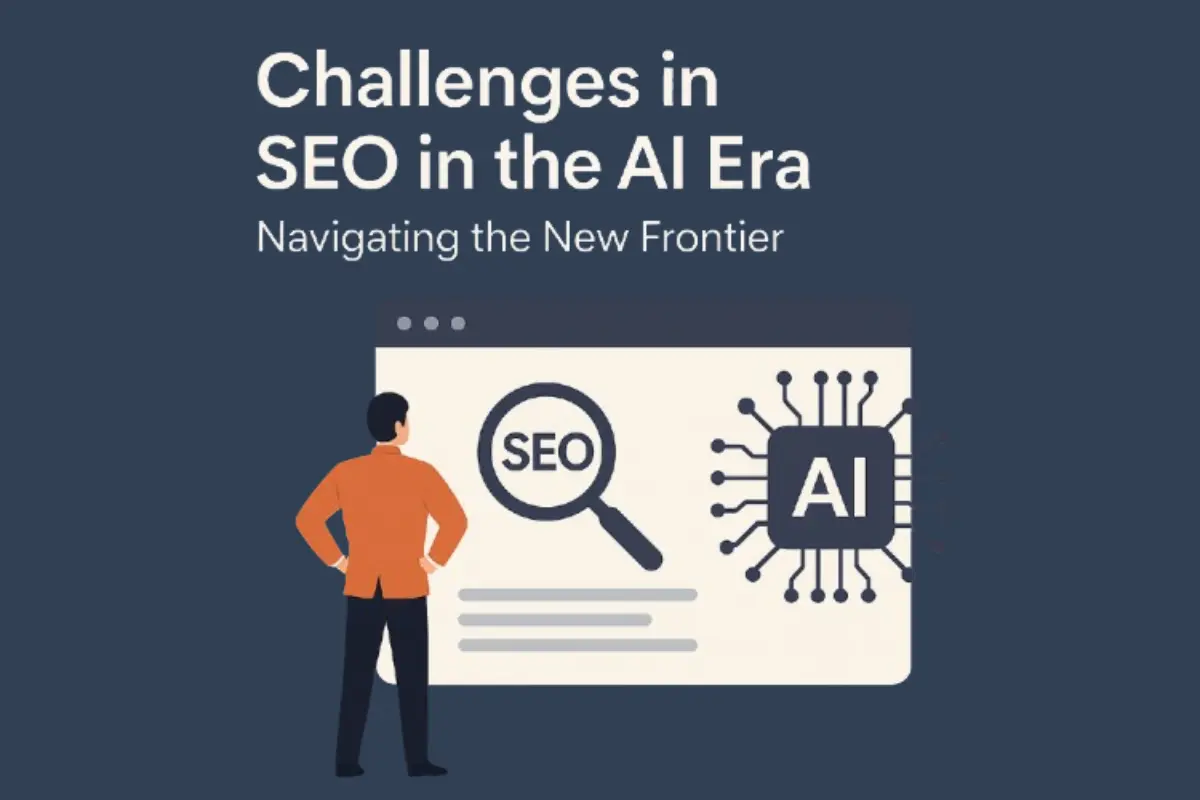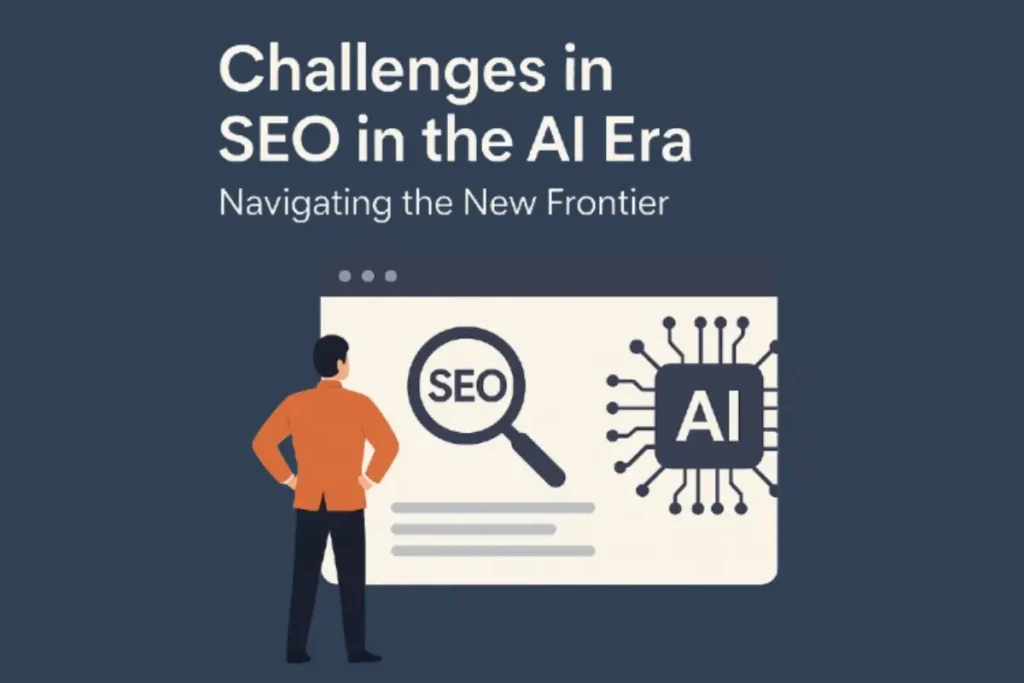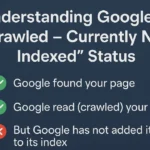Search Engine Optimization (SEO) has always been shaped by technological shifts—from the rise of mobile-first indexing to algorithmic updates like Panda, Penguin, and Hummingbird. However, no change has been more disruptive than the integration of Artificial Intelligence (AI) in search.
In 2025, SEO professionals are grappling with a drastically altered landscape. AI is not only powering search engines but also shaping how content is created, consumed, and ranked. This shift presents enormous possibilities but also complex challenges.
In this article, we dive deep into the most pressing SEO challenges in the AI era, dissecting each with technical insight, real-world examples, and expert recommendations.
1. Algorithm Complexity and Lack of Transparency
The Rise of AI-Powered Algorithms
Modern search algorithms are no longer rule-based systems. They use machine learning (ML) and natural language processing (NLP) to understand queries contextually.
Google’s use of AI technologies like:
- RankBrain (for understanding unfamiliar queries)
- BERT (for context in search queries)
- MUM (for multimodal search and multilingual understanding)
These models adapt and evolve over time, making SEO performance less predictable.
Key Challenges:
- Sudden ranking fluctuations
- Decreased transparency in what factors contribute to ranking
- Real-time changes that are undocumented and invisible
Example:
In 2023, many sites experienced traffic drops without any core update announcements. These were likely driven by AI systems dynamically adjusting based on user behavior.
Actionable Solution:
- Track user intent metrics (CTR, dwell time, pogo-sticking).
- Use search console data alongside third-party AI-detection tools to measure content relevance.
- Adopt content performance monitoring tools (e.g., Surfer SEO, Clearscope) to stay aligned with algorithm expectations.
2. Search Generative Experience (SGE) and Zero-Click Searches
What is SGE?
Google’s Search Generative Experience uses AI to answer queries directly in the search interface—often reducing the need to click any result.
SEO Impact:
- Traditional traffic to websites is declining, even if rankings remain unchanged.
- Informational queries (e.g., “how to make cold brew”) are answered in rich snippets, reducing CTR.
Data Point:
A 2024 SparkToro study found that over 62% of searches in the U.S. ended without a click, largely due to SGE and featured snippets.
Challenge:
How do you optimize for visibility when traffic doesn’t come?
Solution:
- Structure content to be eligible for featured snippets (use bullet points, headers, tables).
- Use schema markup (FAQ, HowTo, Review) to claim rich real estate.
- Place brand mentions, CTAs, and credibility indicators above the fold so users see value instantly—even if they don’t click.
3. Flood of AI-Generated Content
Explosion of Content
AI tools like ChatGPT, Jasper, and Copy.ai have made content generation fast and cheap. As a result:
- Search engines are flooded with similar, shallow content.
- Google struggles to rank what’s genuinely valuable.
Key Challenge:
The internet is becoming saturated with average-quality content written by AI. It’s harder to stand out, even if your content is technically “correct.”
Real-World Scenario:
If 10 websites publish the same “Top 10 SEO Trends in 2025” article written with GPT, which one deserves to rank #1?
Google’s Response:
- Emphasizing E-E-A-T: Experience, Expertise, Authoritativeness, Trustworthiness
- Penalizing overly generic or low-value content
Solutions:
- Include first-hand experiences and original case studies.
- Provide authorship transparency (credentials, bio, links).
- Invest in subject matter experts (SMEs) for content ideation and review.
- Blend AI writing with human creativity, editing, and analysis.
4. The E-E-A-T Conundrum in the AI Era
What is E-E-A-T?
E-E-A-T is part of Google’s Search Quality Rater Guidelines:
- Experience: Has the content creator experienced the topic?
- Expertise: Do they have in-depth knowledge?
- Authoritativeness: Is the website or author a go-to source?
- Trustworthiness: Can the content be trusted?
AI Weakness:
AI can simulate expertise but cannot demonstrate real-world experience or trustworthiness.
Example:
A health article written by ChatGPT won’t match a physician’s blog in Google’s eyes—unless backed by credible sources and an expert’s oversight.
Solutions:
- Add real testimonials, photos, and results from using a product/service.
- Use credible authors, list references, and showcase review processes.
- Make “About Us” and “Author” pages rich and detailed.
5. Real-Time Algorithm Learning
AI Algorithms Learn Constantly
Unlike older algorithms that changed quarterly or yearly, AI models adjust based on real-time user signals.
Challenge:
SEO strategies that work one week may stop performing the next.
Key User Signals AI Tracks:
- Scroll depth
- Interaction time
- Conversion events
- Back-button behavior
Example:
A blog post may rank well at first but drop within days if users bounce quickly or don’t engage.
Solution:
- Use heatmaps and session recordings (e.g., Hotjar, Clarity) to analyze user behavior.
- Update content regularly to reflect user expectations and freshness.
- Test titles, intros, and CTAs to maximize engagement.
6. Rise of Conversational and Voice Search
AI is Powering Conversational Interfaces
Voice assistants and chatbots are handling more search traffic, often skipping traditional search result pages.
Key Trends:
- Queries are longer and more natural: “What’s the best Italian restaurant near me open now?”
- Users expect quick, spoken answers.
Challenge:
Voice SEO is contextual, not keyword-heavy.
Solution:
- Optimize for natural language and long-tail phrases.
- Use schema.org markup to define local data, business hours, and services.
- Implement structured FAQs on every relevant page.
7. AI Bias and Ethical SEO
The Bias Problem
AI models can inadvertently favor large brands, established domains, or certain types of language.
Challenge:
Smaller websites or newer voices may find it harder to rank—even with quality content.
Ethical Dilemma:
Should you “write for the algorithm” or “write for the user”?
Solution:
- Commit to transparent, ethical SEO.
- Use inclusive language, avoid clickbait, and follow Google’s AI content guidelines.
- Build authentic authority with backlinks, reviews, and partnerships.
8. SEO Tools Are Changing Fast
AI SEO Tools Are Everywhere
From content scoring (e.g., Surfer, Frase) to AI keyword clustering (e.g., Keyword Insights), tools are AI-driven.
Challenge:
Marketers may become over-reliant on tools without truly understanding their audience or strategy.
Solution:
- Use AI tools as assistants, not strategists.
- Regularly conduct manual audits of content and keywords.
- Combine AI data with human intuition and brand voice.
9. SEO Job Roles and Skill Gaps
AI is Reshaping SEO Careers
As automation takes over content writing, data analysis, and even strategy, SEO roles are evolving.
New Skill Requirements:
- Prompt engineering
- AI content editing
- Data storytelling
- NLP understanding
Challenge:
SEO professionals must upskill or risk becoming obsolete.
Solution:
- Learn how AI models work and influence SERPs.
- Master tools like ChatGPT, Gemini, Claude, or Jasper.
- Invest time in technical SEO, UX, and data analysis—areas AI can’t fully replicate.
Also Read
Conclusion: The New Rules of SEO in the AI Age
The AI era in SEO is not about beating the algorithm—it’s about aligning with it. As search becomes more intelligent, SEO must evolve from tactical hacks to strategic storytelling. Here’s a quick takeaway:
| Challenge | Key Response |
| AI-powered algorithm complexity | Focus on intent, relevance, and behavior metrics |
| Zero-click search & SGE | Optimize for snippets and structured data |
| Content overload | Prioritize originality, depth, and authenticity |
| E-E-A-T | Show real experience and authority |
| Real-time learning | Monitor engagement, update consistently |
| Voice search | Use natural language and schema |
| AI bias | Build trust and inclusivity |
| Tool overload | Mix AI with human strategy |
| SEO career shifts | Learn AI tools and technical SEO |
The future belongs to SEO professionals who understand both technology and human behavior—those who can balance AI-driven insights with real-world value.





